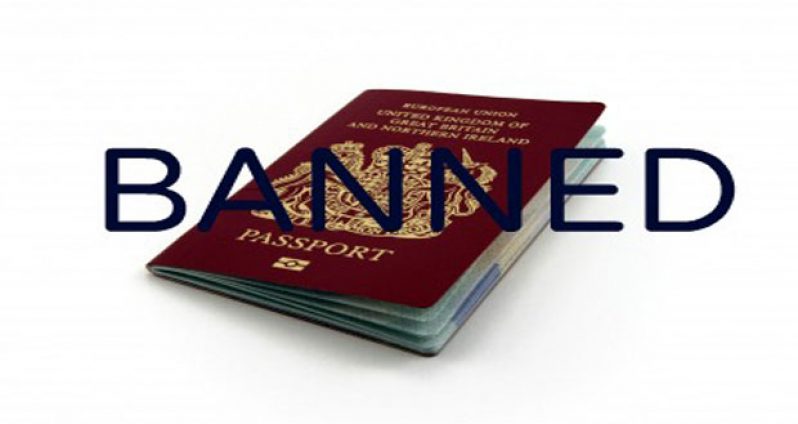SIERRA Leone, Liberia, Guinea and Mali are the four West African countries that Guyana has imposed travel restrictions on, in face of the Ebola threat.Head of the Presidential Secretariat (HPS), Dr. Roger Luncheon yesterday confirmed this, adding that Guyana’s initial position of imposing travel restrictions for all West African countries has been changed.
His comments were made during his weekly post Cabinet press conference at the Office of the President, Shiv Chanderpal Drive.
Dr. Luncheon added that this position was agreed on following conclusion of the 17th Special Meeting of the Conference of Heads of Government of the Caribbean Community (CARICOM), which was held in Trinidad and Tobago on November 4, 2014.
Guyana was represented at the meeting by Prime Minister Samuel Hinds who, according to Dr. Luncheon, briefed Cabinet on the outcomes of the meeting on Tuesday.
The meeting in Trinidad, according to a communique issued at the meeting, accepted that the likelihood of penetration of the Ebola virus disease in the Region is low, based on the low level of traffic from affected areas.
While there have been no reported cases of Ebola in the Region, it was agreed that there needed to be strengthening of the Regional Public Health capacity to confront the possibility of an outbreak of Ebola.
The meeting endorsed the measures taken so far by CARPHA; the Pan American Health Organisation (PAHO); the Organisation of Eastern Caribbean States (OECS) Secretariat and the Government of Cuba, to establish and strengthen regional capabilities to confront Ebola.
10-POINT ACTION PLAN
The Heads of Government also adopted the following 10-Point Plan of Action to Stop Ebola, including the need to:
1. Strengthen effective, coordinated measures at ports of entry to prevent Ebola from entering our Community, including harmonising travel restrictions;
2. Strengthen health systems including training, equipment, laboratories and containment, and enlist the participation of airlines in the Region in transporting specimens and response teams;
3. Create a Regional Rapid Response Team (Carib REACT) able to reach any member state in twenty-four (24) hours to support the national response team to contain/stop an outbreak early on;
4. Launch an intensive public education campaign for citizens of the Region, visitors and those outside;
5. Organise a comprehensive resource mobilisation effort, including a possible Stop Ebola There and Here (SETH) Fund, to which governments, citizens and businesses here and abroad may contribute;
6. Finalise and implement the harmonised regional operational response plan by end-November, coordinated with national response plans;
7. Participate in capacity-building efforts at the global and regional levels to gain experience for our benefit;
8. Establish a Regional Coordinating Mechanism on Ebola (RCME) with CARPHA as Chair, including the CARICOM and OECS Secretariats, IMPACS, CDEMA, and inviting Cuba to participate. The RCME will report to the Lead Head of Government on Health, the Hon. Dr. Denzil Douglas, Prime Minister of St. Kitts and Nevis, with the immediate responsibility to develop a comprehensive Regional Strategy to address Ebola preparedness in collaboration with PAHO/WHO;
9. Invite PAHO/WHO, the United Nations, other development partners and contributors to a meeting within one (1) month to expand the effectiveness of our collective response; and
10. Review and reinforce the effectiveness of these measures as implemented, at the Inter-sessional Meeting of Heads of Government in February 2015, and again at the Regular Meeting of the Conference of Heads of Government in July 2015.
The Heads of Government also agreed on the need for enhanced coordination of the measures proposed in the 10-point plan, with clear responsibilities accorded to regional institutions and international organisations based on competencies.
The meeting mandated CARPHA to complete the national assessments in collaboration with PAHO/WHO and other international development partners and to develop a more comprehensive estimate of the resource requirements of the Region to support an enhanced resource mobilisation plan.
The Community’s responses to Ebola are being coordinated by the Caribbean Public Health Agency (CARPHA).




.png)









